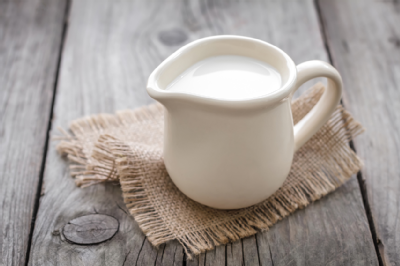Lactose intolerance
 Lactose intolerance is when someone has difficulty absorbing and digesting lactose, a type of sugar found in milk.
Lactose intolerance is when someone has difficulty absorbing and digesting lactose, a type of sugar found in milk.
Lactose intolerance is associated with undiagnosed coeliac disease and is usually temporary. Most people with coeliac disease do not have a problem with lactose intolerance once they have been following the gluten free diet for some time.
Symptoms of lactose intolerance are similar to that of coeliac disease and can include:
- nausea
- bloating
- stomach pain and/or cramps
- diarrhoea.
Lactose is a sugar found in milk from humans, cows, sheep and goats. Cheese contains lactose but at a very low level. Lactose is not found in soya or rice milk.
Lactose intolerance and coeliac disease
Lactose is broken down by an enzyme called lactase, which is found in the lining of the gut.
When people are first diagnosed with coeliac disease, the lining of the gut still has the damage caused by eating gluten which can mean that the body does not make enough lactase, the enzyme that is made does not work properly, or people may not be able to digest lactose. This can cause uncomfortable gut symptoms which are often similar to the symptoms of coeliac disease.
Once you are following a gluten free diet, the gut is able to heal and you will be able to digest lactose again. Therefore, lactose intolerance is usually temporary. Following a gluten free diet means that most people with coeliac disease do not develop lactose intolerance.
Diagnosis and treatment
If you think you may have a problem with lactose, it’s important to discuss this with your dietitian or GP. Don’t remove lactose from your diet until you have spoken to your healthcare professional, as this could potentially reduce your calcium intake.
To find out if you have lactose intolerance, your GP or dietitian may suggest that you totally exclude all foods that contain lactose from your diet. Your symptoms should improve within a few days. You can then gradually increase the amount you eat until your symptoms appear, then stick to having just below this amount in your diet.
Your dietitian can supervise this and make sure you are not missing out on important nutrients which you would usually get from milk and other dairy foods.
Following a diet suitable for lactose intolerance is not the same as following a totally lactose free diet. People with lactose intolerance can usually have some lactose. In fact, eating some lactose can actually help your body become more tolerant to it. Tolerance to lactose varies between people so you should get specific advice and monitoring from a dietitian.
Tips for managing lactose intolerance and coeliac disease
- Choosing food and drink fortified with calcium is important. Soya and rice milks are lactose free.
- Milk which has been treated to reduce the amount of lactose is available from supermarkets.
- Although made from milk, yogurts and cheeses (hard and soft) are very low in lactose and can be eaten by most people with lactose intolerance.
- All butter and some margarines are suitable.
- Combining milk with other foods may help your body to digest lactose, such as adding milk to mashed potato.
- Gluten free foods can sometimes contain milk as an ingredient. Most people with lactose intolerance do not need to avoid these foods. If you are concerned, contact the gluten free manufacturer directly about ingredients in their specific products.
Calcium
People with coeliac disease are at risk of developing osteoporosis. Therefore it is important to have a gluten free diet that is rich in calcium to help keep your bones strong. You can find calcium in non dairy foods including:
| Food per serving | Portion size | Calcium |
|---|---|---|
| Calcium enriched milk alternative e.g. soya milk or almond milk* | 200ml | 240mg |
| Tinned sardines with bones | 1/2 can, drained (42g) | 230mg |
| Sesame seeds | 2 teaspoons | 170mg |
| Pot of soya yoghurt* | 100g | 120mg |
| Kale | 3 tablespoons (80g) | 120mg |
| Baked beans* | 1/2 tin | 105mg |
| Kidney beans | 120g | 85mg |
| Dried figs | 30g | 75mg |
| Orange | 1 | 70mg |
| Almonds | 30g | 70mg |
| Gluten-free bread* | 2 slices | 70mg |
| Broccoli | 3 tablespoons (80g) | 32mg |
| Dried apricots | 30g | 30mg |
*Check your Food and Drink Information for suitable products.